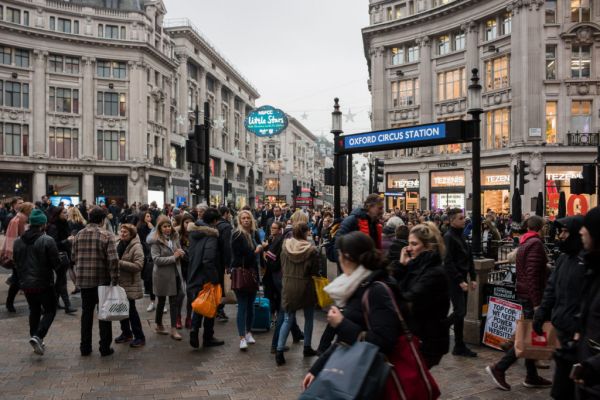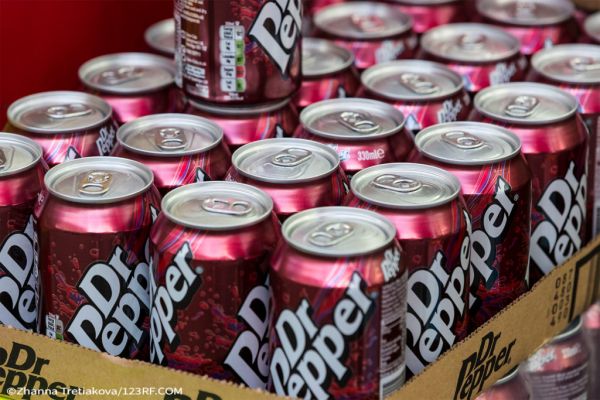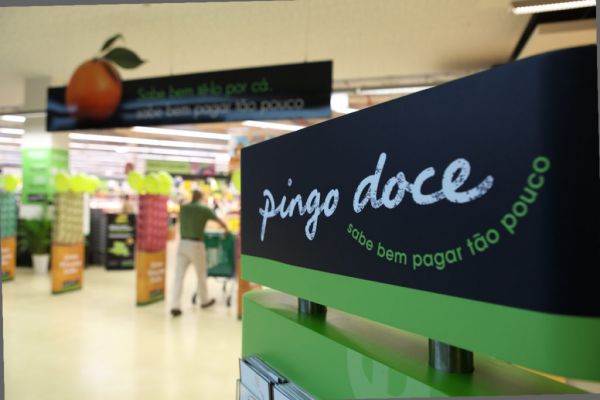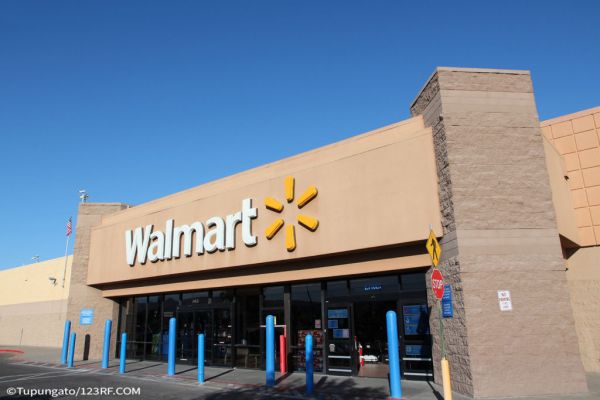A relentless focus on everyday low prices helped Wal-Mart Stores Inc. (WMT) become the world’s largest retailer. The strategy hasn’t been working in Brazil.
Wal-Mart is still losing money there two decades after entering South America’s biggest market, acquiring two local chains in the mid-2000s and opening more than 500 stores.
The company is battling competition from Carrefour SA (CA) and Casino Guichard-Perrachon SA, French chains that have embraced Brazilians’ penchant for shopping around for the best deals. Adding to its challenges, Wal-Mart lacks the scale to squeeze local suppliers on price as it has done so effectively at home.
“Brazil feels hopeless,” Michael Exstein, an analyst for Credit Suisse Group AG in New York, said in an interview.
This isn’t the first time Wal-Mart has stumbled overseas.
The company sold its German and South Korean units in 2006, following years of disappointing results. Amid stiff local competition in China, Wal-Mart is closing 29 underperforming stores and has battled perceptions its food is unsafe after fox DNA showed up in meat it sold as donkey. Last year, the company dissolved a joint venture in India amid local restrictions on foreign investment there.
Wal-Mart’s push overseas was supposed to offset slowing growth at home. That hasn’t happened. Last fiscal year, the international division eked out sales growth of about 1%, down from about 7% the previous year and 15% the year before that. Meanwhile, Wal-Mart is investigating possible violations of the Foreign Corrupt Practices Act in Mexico, China, Brazil and India.
International Distraction
Exstein called the international division a distraction and even suggested that Wal-Mart spin off all but Mexico and Canada, where the company has had comparatively better results. Wal-Mart has disclosed no such plans.
Chief Executive Officer Doug McMillon, who ran the international division for five years, acknowledged at an October analysts’ meeting that “we’re not making the most” of Brazil, where the company has had four local CEOs in a decade.
Kevin Gardner, a Wal-Mart spokesman, said the company is “pleased” with sales of food and consumables in Brazil, which he said represent the bulk of business there. Wal-Mart continues to work on the everyday low price strategy in Brazil, he said in an e-mail. A local e-commerce website, which debuted in October, has shown early signs of success, Gardner said.
In its fourth-quarter earnings release in February, Wal-Mart reported that while net sales in Brazil grew 5.3%, traffic to stores there declined 3.4%.
Economic Headwinds
Partly, the company is battling economic headwinds. With retail sales decelerating and industry stagnating, Brazil’s economy grew at an annual average of 2% from 2011 to 2013, less than half the 5.1% clip for the three years ending in 2008.
“This has been a challenging market for a number of reasons,” David Cheesewright, Wal-Mart’s new international CEO, said during an earnings conference call in February.
Wal-Mart opened its first Brazil location in 1995. Today it operates supercenters, supermarkets, warehouse stores, bodegas and gas stations under various brand names. The company transplanted to Brazil its founding strategy of offering low prices every day rather than deeply discounting and promoting certain items occasionally.
Executives have said the company needs to more clearly explain its pricing strategy to local shoppers. At the October analyst meeting, McMillon said “our marketing communication could be better” in Brazil. The company is now advertising on local prime-time television.
Cherry-Picking Promotions
Better communication is probably beside the point, said Thales Teixeira, a professor of business administration at Harvard Business School in Boston. Brazilians will shop at several stores if that’s what it takes to get the lowest possible prices for all the items on their lists, he said.
“They’re cherry-picking the promotions,” said Teixeira, who grew up in Brasilia. “They care more about that and less about Wal-Mart’s one-stop shopping convenience. At Wal-Mart, they’re finding a fair price for their basket, but it’s not necessarily the lowest price for all the items in it.”
Maria Dilma de Oliveira, a 41-year-old maid, was checking out the powdered-milk options at a Wal-Mart in Sao Paulo yesterday. While she says the prices are generally cheaper, especially for things like milk and detergent, de Oliveira looks elsewhere for deals.
“I also shop at Carrefour,” she said.
Organized Stores
Karina Favaro, a 37-year-old high-school teacher who also lives in Sao Paulo, drives 20 minutes from her home to shop at Wal-Mart once a week. She’s loyal because the store is organized and clean and the prices are cheap. Wal-Mart beats Extra, a hypermaket-style brand owned by Casino, on “many different items,” she said.
Wal-Mart lacks bargaining power with local suppliers. In March, Chief Financial Officer Charles Holley said the company hasn’t integrated two local chains, Bompreco and Sonae, acquired in the mid-2000s.
As a result, multiple sets of buyers are making separate purchases and leaving volume-buying discounts on the table, said Silvio Abrahao Laban Neto, a professor of marketing at Insper Institute of Education and Research in Sao Paulo. The lack of integration also breeds inefficiencies in information technology, logistics, marketing and human resources, said the professor, who was an executive in the Brazilian operations of Wal-Mart, Carrefour and Casino (CO)’s predecessor.
Relationships Matter
Nor does Wal-Mart have its rivals’ longstanding ties to local suppliers. Carrefour has operated with success in Brazil, its second-largest market, since 1975. In 2012, Casino took control of Pao de Acucar, an established, locally owned company that has been long popular with shoppers. In Brazil, strong relationships matter, said Susan Perkins, a professor of international business strategy at Northwestern University’s Kellogg School of Management in Evanston, Illinois.
“This is part of the reason why they’re failing,” said Perkins, who spent the earlier part of her career based in Sao Paulo as a consultant for multinational corporations.
Brazil is a tough place to operate. Strict labor laws make it difficult and costly to hire and fire workers, and wage disputes ending in litigation and settlements are routine, said Sergio Lazzarini, a professor of business strategy at Insper. The World Bank rates the nation’s tax code among the world’s most challenging and time-consuming to comply with.
“Over time you develop expertise in all those things,” Lazzarini said. “Wal-Mart hasn’t.”
Profit Bite
Wal-Mart said in February that unexpected challenges in Brazil took a bite out of fourth-quarter profit. A probe by Brazilian tax authorities resulted in assessments that reduced earnings by 6 cents a share. Cost-cutting efforts led to “a significant increase in employment claims,” which subtracted another 5 cents from earnings. Wal-Mart, which posted net income of $1.36 a share for the period, incurred additional costs associated with closing 25 underperforming stores in the country.
Even as Wal-Mart struggles, Brazil has proved lucrative for other multinationals, said Mauro Guillen, a management professor at the Wharton School at the University of Pennsylvania in Philadelphia.
“Companies understand conditions aren’t ideal but decide it’s still worth it,” he said. “However difficult the Brazil bureaucracy may be, other foreign retailers have figured it out.”
Brazil has been a strong market for Procter & Gamble Co. (PG) and for Nike Inc. Despite some recent struggles, Coca-Cola Co. has had years of success and growth there. Domino’s Pizza Inc. continues to expand, and Dunkin’ Brands Group Inc. is opening 65 stores there.
Wal-Mart didn’t consider how it would have to adapt its strategy to Brazil and may need to focus on markets where the everyday low price resonates with shoppers, Perkins said.
“If you don’t think about how your business model fits into a local context, you’re going to suffer for a long time,” she said. “If you don’t eventually cultivate the local skills, you’ll have to leave.”
Bloomberg













